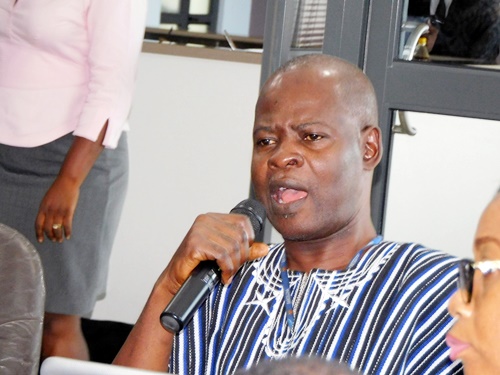…as companies switch to renewables
The Civil Society Platform on Oil and Gas (CSPOG) has called for urgent steps to contain the risk of stranded oil wells, as oil producing companies show disinterest in exploring and producing the commodity in Ghana.
According to the group, investments in exploration and new development projects in Ghana have declined sharply; and with the reserves of existing producing fields fast depleting, the country risks an imminent downturn in the medium-term, and a stranded asset in the long-term.
The Economist Intelligence Unit (EIU) earlier predicted that, in 2021, energy investment will shift from oil and gas to renewables. Solar and wind combined have been projected to record the strongest growth among all sources of energy in 2021.
“Though the crude oil market seems to be on a rebound from the 2020 collapse, consumption is not expected to hit 2019 levels – providing even greater incentive for investors to turn to renewables. Cost of capital has also not helped matters. From 2-3 percent in 2010, it went up to 5 percent in 2015, and is currently between 9 and 10 percent,” said a statement signed by a leading member of the group, Dr. Steve Manteaw.
Drawing the country’s attention to some statements made by major oil producing companies, Dr. Manteaw recalled that BP announced last year that it was poised to build 50GW of renewable power by 2030 – and to cut fossil fuel production by 40 percent.
“ENI has also announced that it intends to dispose of all non-core upstream assets and will no more undertake mega projects for oil and gas. The other super-majors – Shell, Total, ExxonMobil and Chevron – have made similar commitments, with Shell bent on leading the investment race in carbon-neutral energy production.”
The situation, he said, in the view of CSPOG is further compounded by the EU Taxonomy agenda – a classification system establishing a list of environmentally sustainable economic activities EU-registered companies are encouraged to invest in.
He maintained that the EU taxonomy is an important enabler to scale-up sustainable investment, discouraging investments in hydrocarbons. He pointed out that, already, the daily production of Oil and Gas Majors in Africa is on the decline and projected to settle at 34 percent by 2025, as the companies sell off assets in upstream oil and gas sectors to invest in renewables.
He cautioned that an analysis of the country’s oil production data since 2010 indicates that unless new discoveries are made, Ghana’s oil industry will soon become moribund. “Already, 50 percent of the total Greater Jubilee reserves, 33 percent of TEN Field, and 25 percent of Sankofa have been produced. The Pecan and AGM fields operated by Aker were supposed to have made substantial progress toward production by now, but last year Aker served notice that it was suspending its Final Investment Decision (FID) on grounds of market slump, and project viability concerns.”
Dr. Manteaw was of the view that even if new discoveries were to be made, Ghana will still be confronted with the spectre of stranded oil – as fossil fuel will no longer be attractive in the medium- to long-term.
According to him, demand will fall together with price, taking away the incentive for crude oil exports. “The time to act is now,” he said; adding that the situation calls for urgent steps to secure the industry’s future.
“CSPOG believes that when oil become a stranded asset, it will still have relevance for those countries which have the technical capability to exploit the resource for domestic use – just as in spite of coal being a dirty fuel, it has remained relevant to the economies of countries that have huge reserves of the resource; such as Brazil, South Africa, China, Australia and New Zealand,” he argued.
By this, the group urged the Ghana National Petroleum Corporation (GNPC) to take its drive toward operatorship seriously, and to begin negotiations with potential partners toward arrangements that will help to fast-track the achievement of this ambition.
The statement added that since Aker has still not come onstream, it affords an opportunity to re-open discussions to see if the NOC can reach an accommodation with Aker in the matter of a partnership that revolves on mentoring GNPC into operatorship in the shortest possible time.
“GNPC also needs to be resourced financially or redirect some of its non-core expenditure to commence exploration on Block 1, which was reserved for the Corporation during the first Bid Round and Licencing process.”
The statement urged the GNPC to fast-track data acquisition and eventual operatorship of the onshore Voltaian Basin to build capacity for operatorship of other fields.










